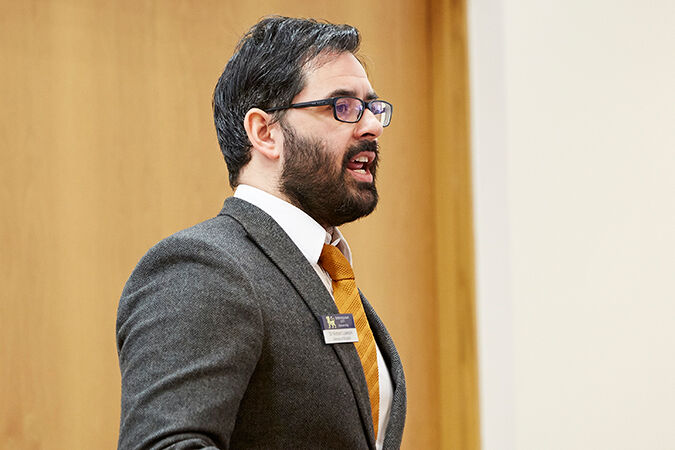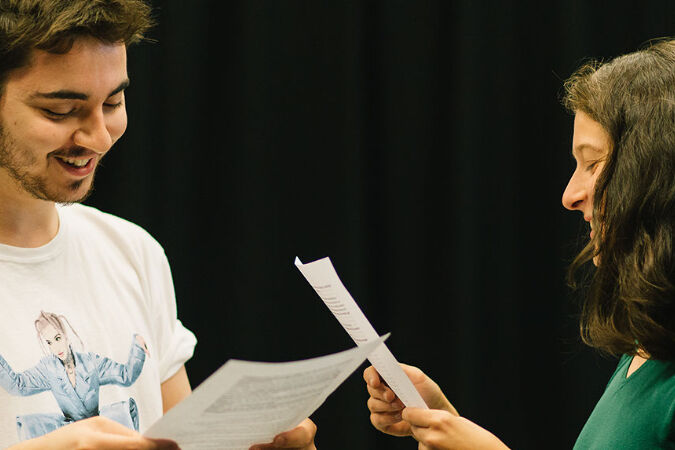
Blog

We caught up with Tatiana Grieshofer, Course Director for the MA English Linguistics course, to find out more about her work as an academic and her top tips for students thinking about joining the course.
Tell us about your work as an academic and your role at Birmingham City University
My research is on courtroom discourse and communication in legal settings. Since the topic is very interdisciplinary and impactful, I have gained experience with a wide range of linguistic areas and analytical frameworks, including corpus linguistics, lexico-grammatical analysis, pragmatics, discourse analysis, Conversation Analysis, sociolinguistics and ethnographical approaches to interaction and communication in institutional settings. As part of my BA teaching repertoire, I offer modules on grammar and phonetics, TEFL and general linguistics modules. On the MA programme, I teach the module on Second Language Acquisition.
As Course Director for MA in English Linguistics, I guide students throughout their journey with us and act as their personal tutor. I am happy to help with any queries related to the choice of modules, general assessment queries and the selection of the dissertation topic.
What can prospective students look forward to when they join the MA in English Linguistics?
This is a very flexible course and students can decide on many of the key elements: whether they submit their assignments after three months or six months (for 20 and 40 credit modules); whether they want to study one module at a time or several modules at the same time (this is possible with modules leading to the same exit award); whether they want to complete the full MA programme or exit with the exit qualification; when they want to study more intensively, depending on their availability.
In addition to the flexibility of the programme, students can also look forward to the content of individual modules. The content often revolves around a handbook and additional online materials as well as core books covering a wide range of topics. The modules broaden the students’ horizons and conceptualisation of the field as well as provide an opportunity to focus on a specific area of interest. With the wide range of option modules, students can adapt the degree to their professional interests and career ambitions.
What are your tips for students thinking about joining the MA in English Linguistics?
This is a course you can adapt to your needs. Some students take a year and a half to complete it and some take up to five years to finish their studies. The course is popular with busy professionals as well as students who prefer a more intensive mode of studying. So make sure you plan your studies according to your professional needs and availability.
All the academic staff welcome interaction with students and provide helpful feedback. We have a helpful first drafts reading policy, which means that students can send their first drafts to tutors up to a week in advance of the deadline and receive useful feedback on how their final assessment can be strengthened. We provide feedforward on the contents as well as the academic writing style, so I would definitely urge students to send their tutors first drafts for feedback as this is an extremely valuable opportunity to strengthen the final submissions and develop academically.
Why study for an MA in English Linguistics?
An MA degree in English Linguistics provides a solid foundation for many career paths, such as teaching, research in language and communication, media and publishing work, PR and communications areas. Many of our current students work full-time while living and working abroad; studying on the MA programme provides multiple career progression opportunities.
English Courses
Find out more about our courses




